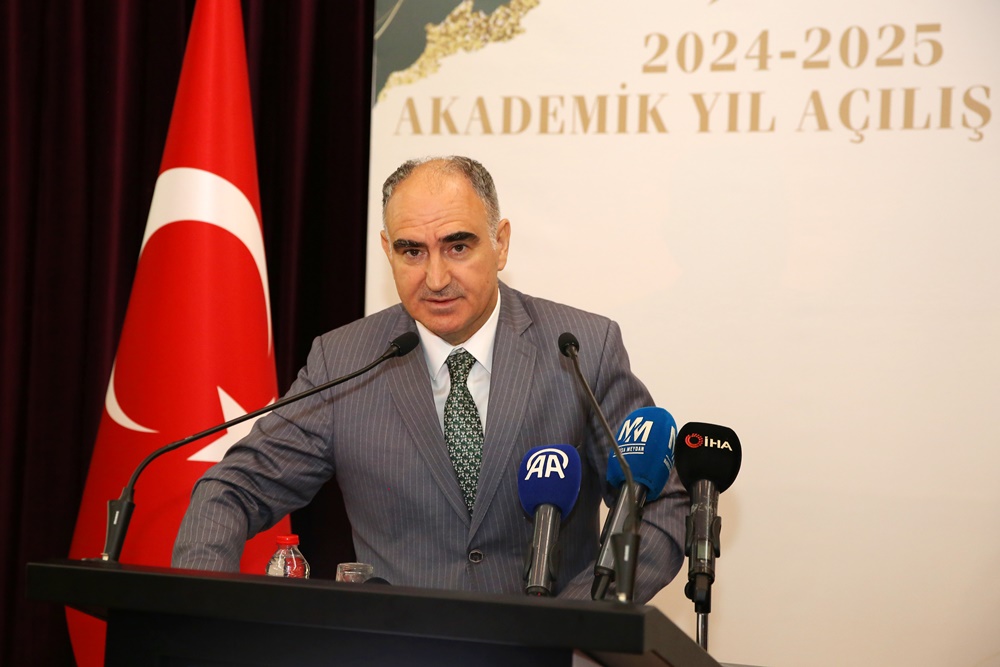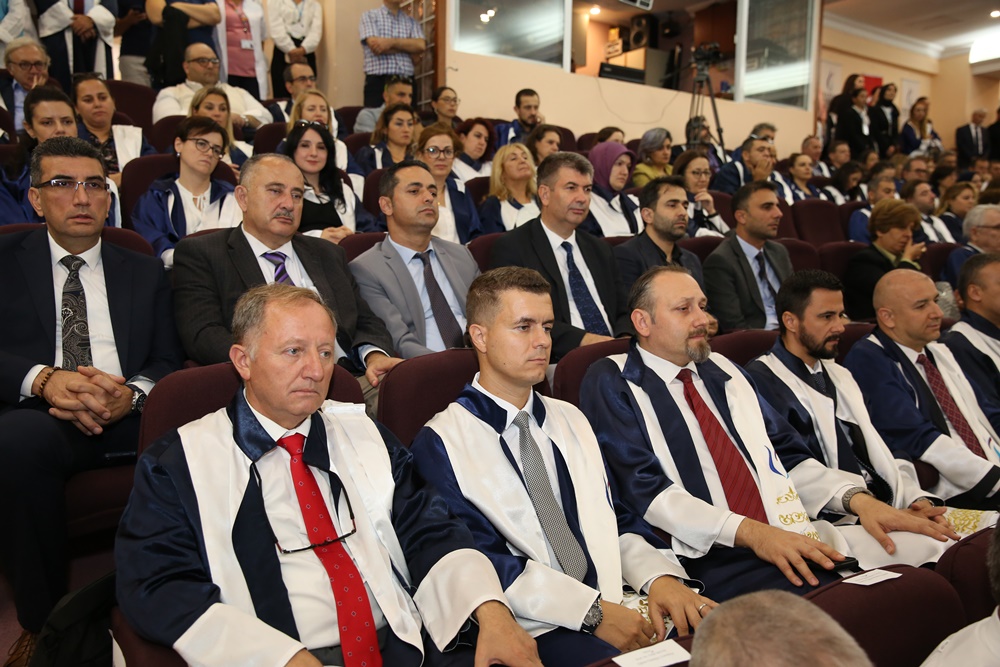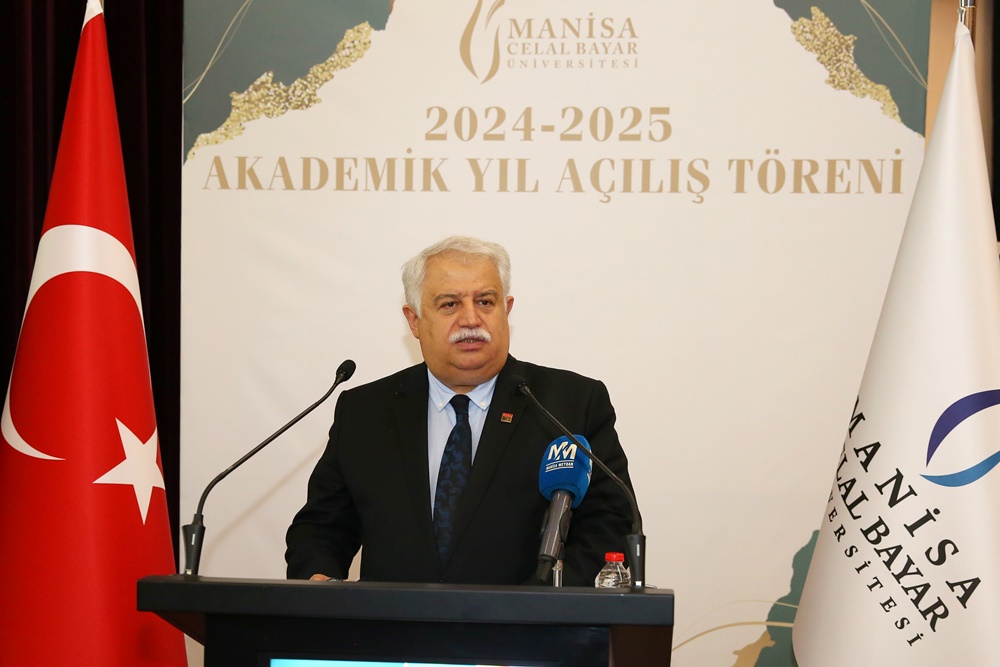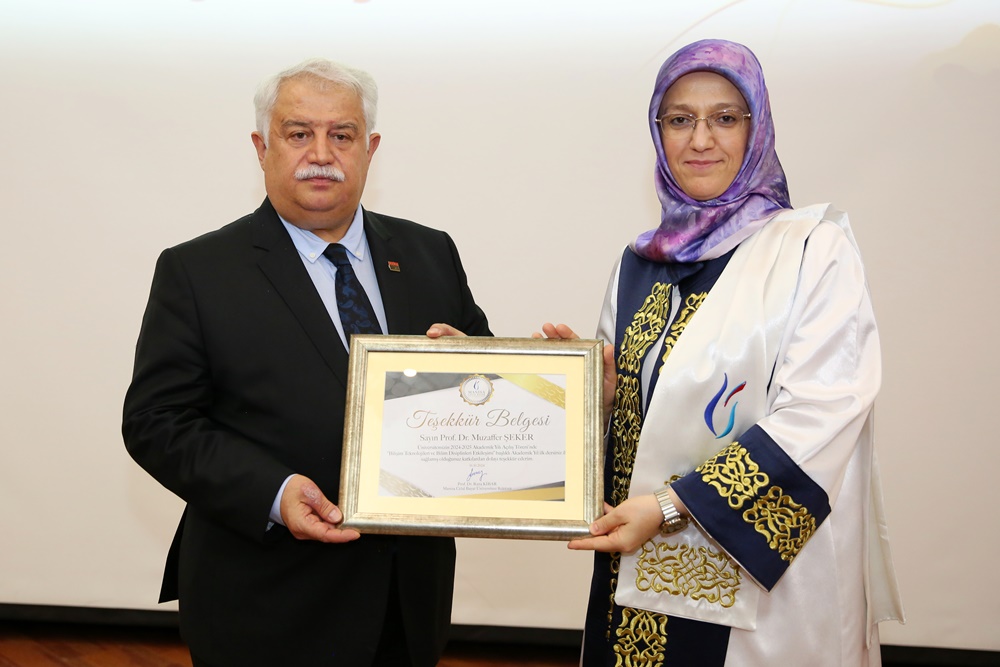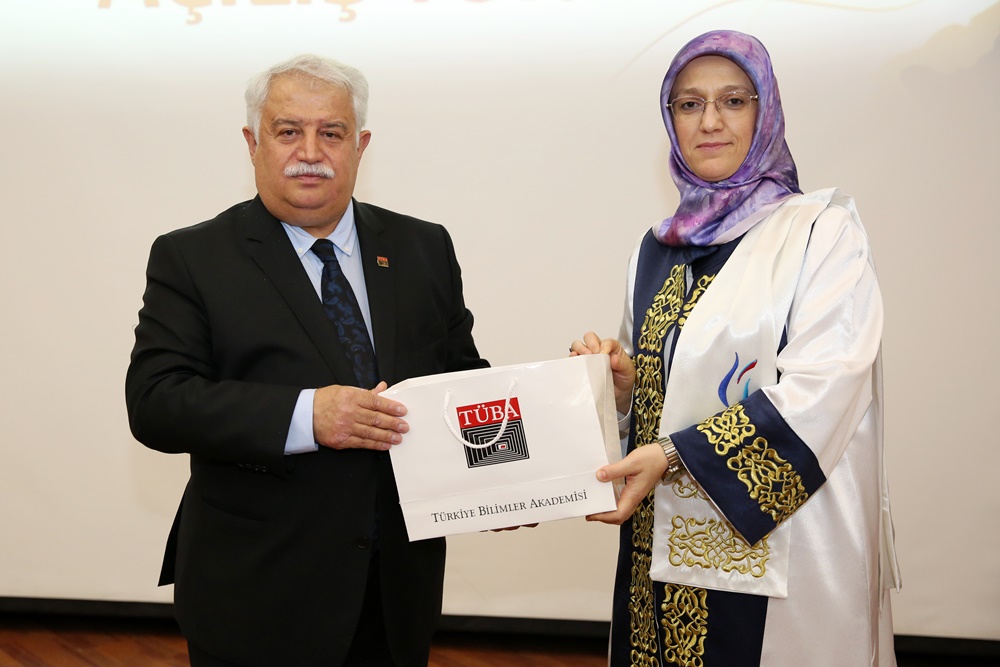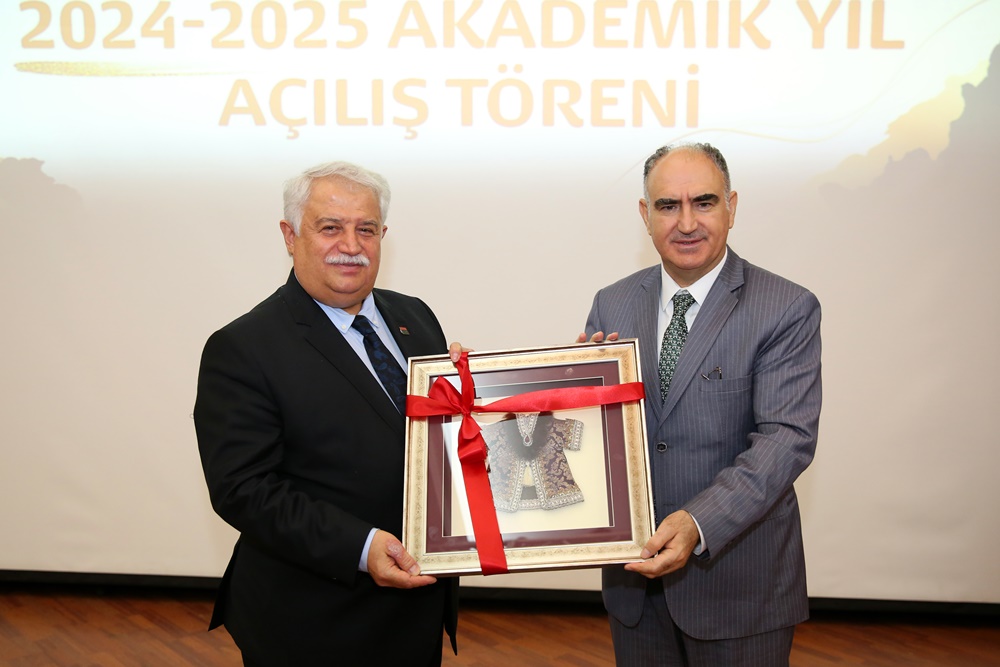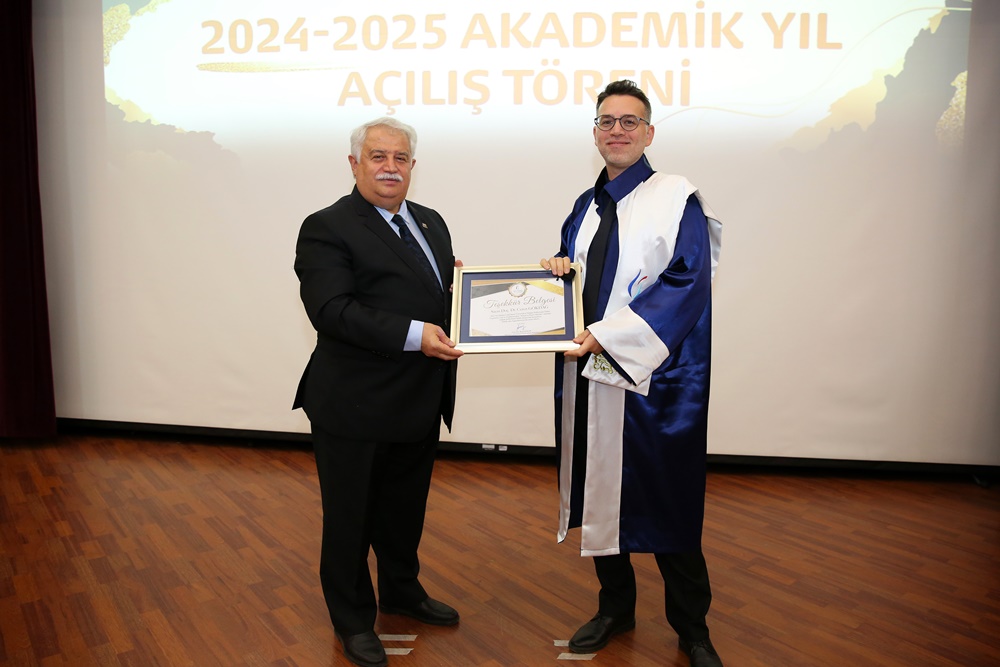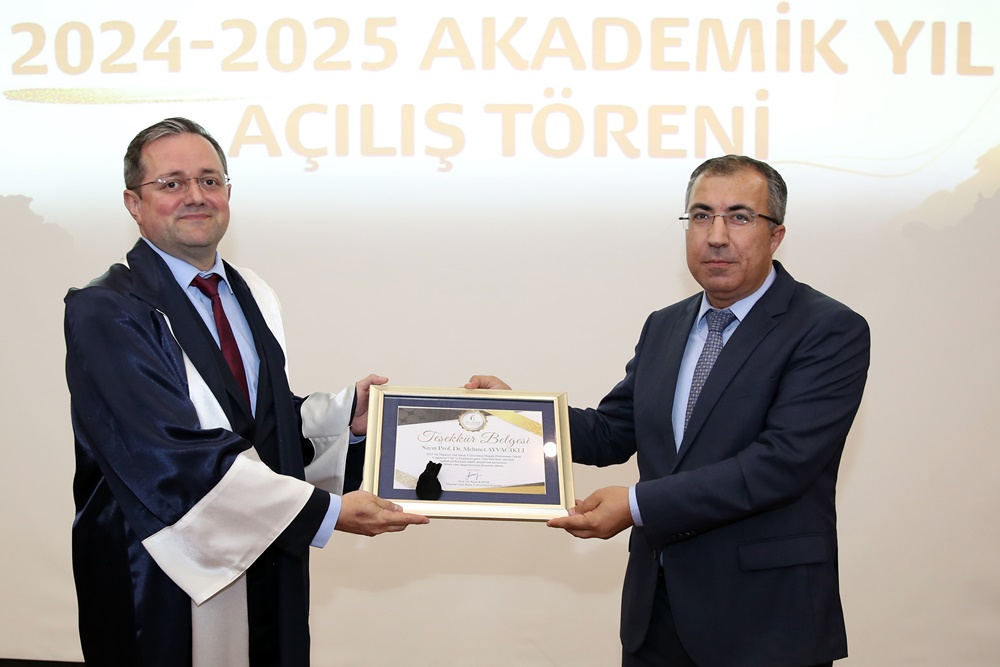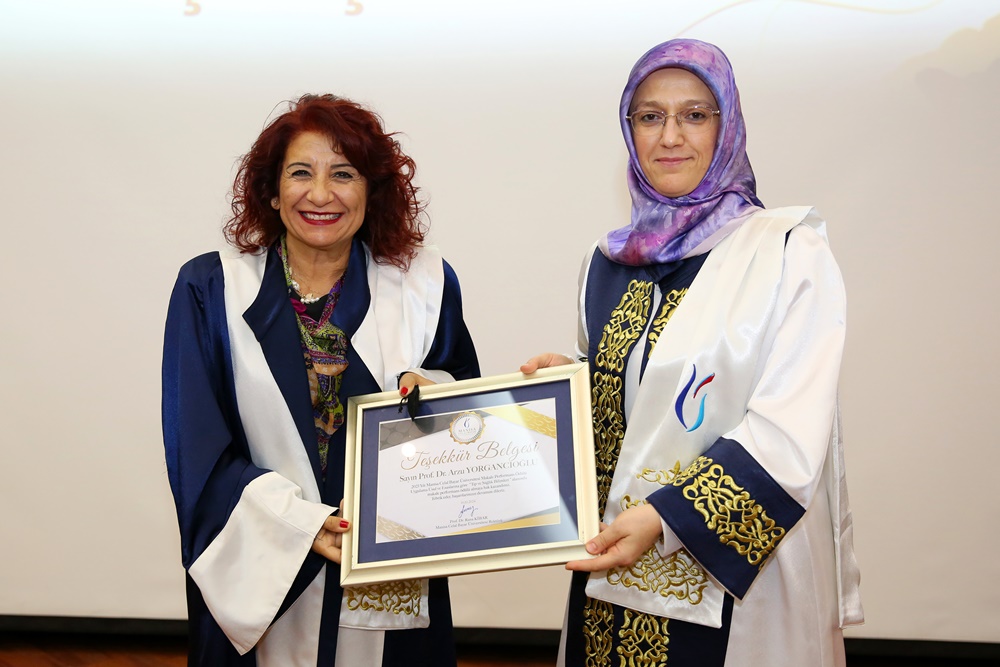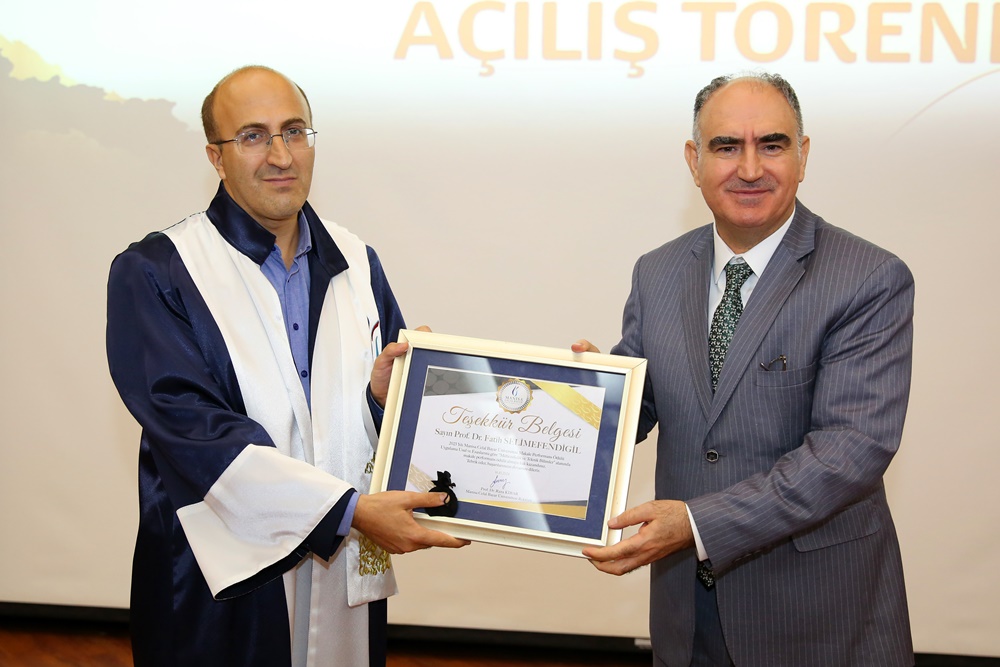The Opening Ceremony of the 2024-2025 Academic Year at Manisa Celal Bayar University Took Place with High Attendance.
The Opening Ceremony of the 2024-2025 Academic Year at Manisa Celal Bayar University took place with high attendance at the Süleyman Demirel Cultural Center in the Uncubozköy Health Campus.
The ceremony was attended by the Governor of Manisa, Vahdettin Özkan, Deputy Commander of the Provincial Gendarmerie, Colonel Şener Şen, Mayor of the Metropolitan Municipality, Ferdi Zeyrek, Chief Public Prosecutor Kurtca Eker, Chairman of the Justice Commission Osman Soydal, Rector Prof. Dr. Rana Kibar, District Governor of Şehzadeler Fatih Genel, District Governor of Yunusemre Atilla Kantay, President of the Turkish Academy of Sciences (TÜBA) Prof. Dr. Muzaffer Şeker, members of the provincial protocol, chamber presidents, academic and administrative staff, and students.
The program began with a moment of silence and the singing of the National Anthem, followed by the reading of congratulatory messages and a music performance by the faculty members and students of the Faculty of Fine Arts, Design, and Architecture.
In her opening speech after the university's promotional film was enthusiastically received, Rector Prof. Dr. Rana Kibar stated, 'Academic events are among the most beautiful, emotional, and exciting days for universities. I would like to thank you for attending this special day and not leaving us alone.'
Rector Prof. Dr. Kibar shared information about the university's general status and activities, saying, 'We have just watched our university's promotional video. When we arrived, we had 15 faculties. As of August 1, 2024, with the decision published in the Official Gazette to include the Faculty of Computer and Information Sciences within our university, we now have 16 faculties. Manisa is a city that is quite developed in terms of industry. Alongside its many developed features, we have 15 vocational schools to contribute to regional employment. We continue to provide qualified graduates who are sought after in the industry through our 15 vocational schools located in almost every district of Manisa, except for two. In addition, we have the Tobacco Expert Vocational School, which is unique in the world and grants engineering titles, and our Foreign Languages Vocational School, which supports our students' foreign language education. Our institute is one of the most important units that trains postgraduate students in social and health sciences. With 66 student clubs and 49 student communities, our students participate in various academic and social activities within our university. We have 32 application and research centers and 14 coordinators working to serve Manisa on behalf of our university. As you know, one of the main duties of universities is to teach science-based knowledge. It is also their responsibility to raise individuals who are beneficial to our country and humanity. As Manisa Celal Bayar University, we are an institution that produces knowledge together with society, focuses on employment, and aligns with the professions of the new age.'
Rector Prof. Dr. Rana Kibar stated that 9,095 students enrolled in Manisa Celal Bayar University in 2024, bringing the total number of students to 49,012 and the number of academics to 2,019. She said, 'Aligned with the vision of the century of Turkey and our country's development goals, we aim to cultivate qualified human resources for national and local technology, with a focus on scientific productivity, digitalization, and green transformation. With our vision and educational system dedicated to science for our country and all humanity, we are ready for the 2024-2025 academic year together with you.'
Mayor Ferdi Zeyrek emphasized that our university, as part of Manisa, enables us to look to the future with hope through the youth educated in the light of knowledge and science. He stated, 'As the Manisa Metropolitan Municipality, we consider education one of our top priorities. Raising a generation illuminated by science and contemporary education means carrying our country to a stronger and freer future. Education is not just about acquiring knowledge; it is also about developing individuals' abilities to think freely, question, and create. With this understanding, we, as the Manisa Metropolitan Municipality, strive to support our students and contribute to their educational lives.
Dear youth, you are the future of this country. Your access to knowledge, your development, and your dreams are very important to us. It is our responsibility to ensure you do not plan your hopes and dreams elsewhere, but rather see your future in this country and this city. We must build a country together where you can express yourselves freely and without concerns about the future. You will shape our future with education, science, and courage.'
Governor Vahdettin Özkan highlighted that accessibility to education is a priority issue, and our government is making significant efforts to enhance and expand educational services. He stated, 'The main mission of our universities is to produce knowledge. However, transforming this knowledge into technology in social life, further developing education-industry collaboration, is important both for the public good and for increasing our competitive strength in the world. Collaborations between universities and industries, as well as with society and other sectors, are crucial for producing theoretical knowledge, generating technology, and meeting the demand for skilled labor. It is well known that all sectors will progress with qualified individuals, and this is what our universities, guided by our professors, do. Increasing the quality of education, boosting participation, and enhancing the institutional capacity of all organizations serving education are our national strategic goals. Our development plans prioritize education, and we all have responsibilities in this regard. We will support education alongside public institutions, municipalities, and NGOs, especially in industry. Our university leads the way in passing on the values of civilization inherited from our history to future generations. It is very valuable for our universities to guide both knowledge and technology production and societal development. Universities are also mechanisms for preserving society against contextual risks.'
Prof. Dr. Muzaffer Şeker, President of TÜBA, delivered the inaugural lecture titled 'The Interaction of Information Technologies and Scientific Disciplines,' explaining Turkey's academic science tradition since the Encümen-i Daniş and providing information about TÜBA's structure, programs, and projects. He detailed TÜBA's scientific diplomacy efforts with the international scientific and academic community, national academy relationships, memberships in umbrella organizations, and collaborations on global programs and projects, as well as partnerships with the Asian and Turkic world, and the significance of TÜBA and G20 meetings.
Addressing the impact of science and academia on development, Prof. Dr. Muzaffer Şeker emphasized that progress is built on innovation and stability. He stated, 'Universities must localize internationally, living with diverse student and faculty bodies. Higher education stands strong worldwide with migrants. In America, Europe, and Asia, there are environments where people from different countries work as students or professors. If we lose this principle, it will be difficult to recover. We are sitting on a fragile glass plate, and we need to protect it from damage. The future of the country progresses through international solidarity, joint projects, and partnerships with the countries we will work with. Let us choose, nurture, and send students who come from abroad to contribute in every way as representatives of our country. The world opens its arms to them. Our students claim a place for Turkey wherever they go. If Turkey were to bring all its citizens back and sever ties with the outside, it would not be sustainable as a closed-off country. Scientific endeavors proceed through mutual cooperation and support. If we were able to raise Prof. Dr. Aziz Sançar, that is our achievement, but he received a Nobel Prize working in America and trained many Turkish students in his laboratory there. Teaching involves caring for every aspect of the student. In this context, let us make good use of the responsibilities entrusted to us. We must seize the opportunities Turkey has in this area.
Turkey must regain the discipline of assessment and evaluation in higher education. We have reached a point where we are merely graduating those who come to us. This negatively affects our quality. Every student should be allowed to come at the undergraduate level, but not everyone should graduate. Raising success is not something that can be corrected with the push of a button. If a student is successful, the teacher must acknowledge that. Success cannot be elevated through external intervention. It is the teacher's duty to give the student the score they deserve based on their level of education. We must ensure that we establish assessment disciplines according to rules, competencies, and qualifications. This applies to every field. If our graduates cannot carry their graduation certificates with pride, that is our problem.'
Prof. Dr. Muzaffer Şeker concluded his speech with the words of Hz. Mevlâna Celaleddin-i Rûmî: 'How nice it is to migrate from one place every day, how beautiful it is to settle somewhere new, how pleasant it is to flow without muddiness or freezing. Yesterday is gone, my dear; whatever words there are, belong to yesterday. Now we must say new things.'
The program concluded with the presentation of 'Article Performance Awards' to the academics with the highest publication output in 2023, followed by a group photo.
